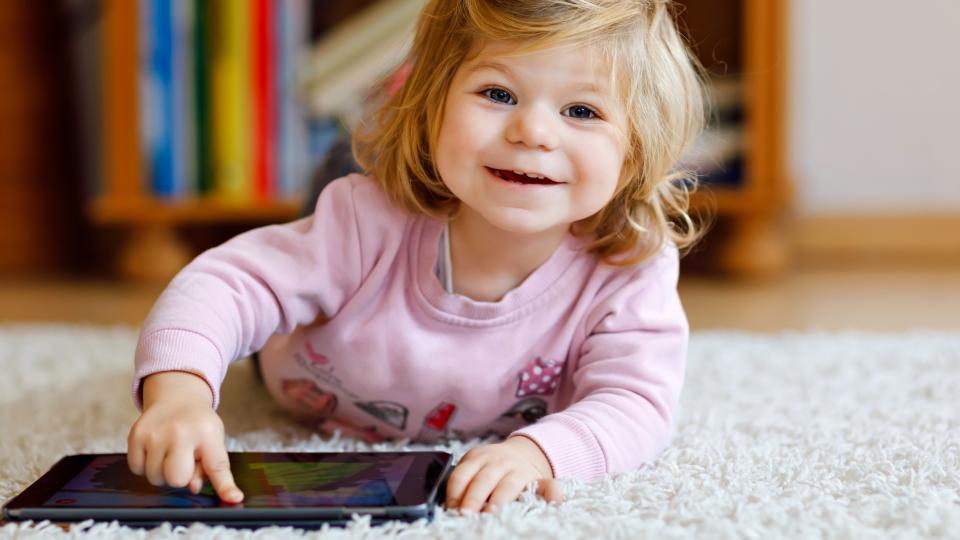
Media education
Ready for the future?
Model project "Digital media in early childhood education - media education in daycare centers"
With this in mind, the Ministry for Children, Families, Refugees and Integration of North Rhine-Westphalia (MKFFI) carried out the pilot project "Digital media in early childhood education - media education in daycare centers", in which selected daycare centers and family centers in the Emscher-Lippe region tested the use of digital media in everyday daycare. During the project period (from March 2017 to the end of February 2019), the daycare centers received media education and scientific support as well as assistance with technical questions and problems as needed. The primary aim of the pilot project was to develop high-quality media education work in daycare centers.
Handout offers suggestions and practical examples
This handout, developed by the Institut für soziale Arbeit e.V. and the Blickwechsel e.V. association for media and communication, presents the results of the two-year MKFFI pilot project. It provides suggestions on how media education can be made a topic in the institution and experienced with children; what role media education plays in the educational partnership with parents and how a reflective and safe approach can be designed. In addition to practical examples from the daycare centers participating in the project, the handbook offers a range of working materials and also presents results from the scientific monitoring by the University of Cologne
Opportunities and risks of media use in early childhood language education
In view of current technological progress, the question of the extent to which the use of (digital) media influences children's development, particularly with regard to language acquisition, is being raised more and more frequently. There is often concern that high media consumption has a negative impact on children's (language) development. In fact, digital media certainly offer opportunities for early childhood language development, but they also pose risks.
Children are often fascinated by media. They use tablets, PCs, television and smartphones as a matter of course. Using media offers various language opportunities, for example children want to recount what they have seen or act out stories about their favorite heroes. When watching TV, however, it is particularly important that children are given the opportunity to participate in what they are watching, i.e. that they are encouraged to join in (e.g. to sing along).
Apps and software can also be used for language learning. For example, Stiftung Lesen recommends children's book apps and interactive stories that can be used in combination with books: Children's book apps and interactive stories that can be used in combination with books
In general, it should be noted: Children learn language through interaction with (real) conversation partners, they must actively participate and need feedback from their counterpart. This cannot be achieved through a screen alone. Media should therefore only be seen as a supplement to other language education measures and primarily as a means of creating language opportunities. Care should be taken to use media in a measured way. The Federal Centre for Health Education recommends that under-threes should not consume any screen media, and over-threes should be accompanied by an adult for a maximum of 30 minutes a day.
The decisive factor in using media for language development is therefore adult supervision, which on the one hand must consciously make the selection and ensure that it matches the child's level of development and on the other hand can encourage active linguistic engagement with the content.
Further links & tips
A summary of media and language education can also be found on the NRW media competence portal:
www.medienkompetenzportal-nrw.de/themen
The NRW Media Authority and the municipal integration centers have jointly developed two publications that contain practical tips and activities for combining media and language education for parents (1) and educational professionals (2).
(1) LfM/KI. (2016). Children - media - language. Media education activities for language education for parents with their preschool children. Available online at:
www.lfmpublikationen.lfm-nrw.de
(2) LfM/KI. (2015). Everyday integrated language education in day-care centers. Handout with activities for practice. Available online at:
www.lfmpublikationen.lfm-nrw.de
Information on media education and the project "#family - digital media as co-designers of everyday family life" of the state working groups of family education in NRW
The DJI offers a database of apps for children in general:
Digital media in early childhood education
Children today have access to digital media at an increasingly early age. As part of the reality of children's and families' lives, it is no longer possible to imagine daycare centers without them. The use and acquisition of media skills is already an important educational task in early childhood and is therefore also anchored as part of the educational mission in the state's educational principles.